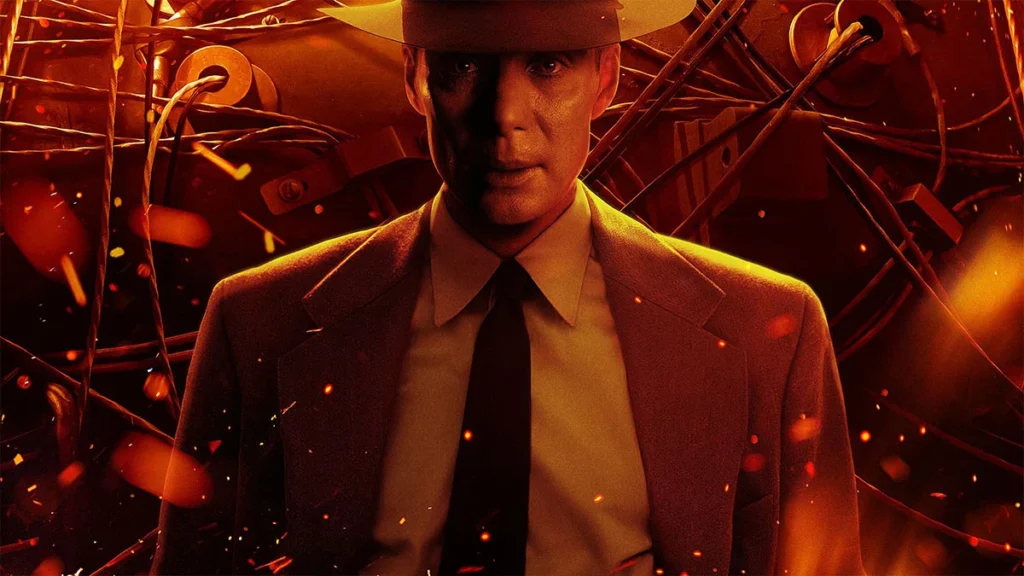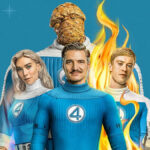Unless you’ve been living under a rock, you’ve probably heard about Christopher Nolan’s latest cinematic masterpiece, Oppenheimer. This gripping biopic tells the story of J. Robert Oppenheimer, the brilliant physicist who led the Manhattan Project and helped create the atomic bomb. Oppenheimer has taken the world by storm, earning critical acclaim and dominating the box office.
If you loved Oppenheimer and are craving more movies that blend science, drama, and historical significance, you’re in luck. We’ve compiled a list of 16 must-see films that capture the same spirit of discovery, moral dilemmas, and human stories behind groundbreaking scientific achievements. Get ready to have your mind blown!
1. Fat Man and Little Boy (1989)
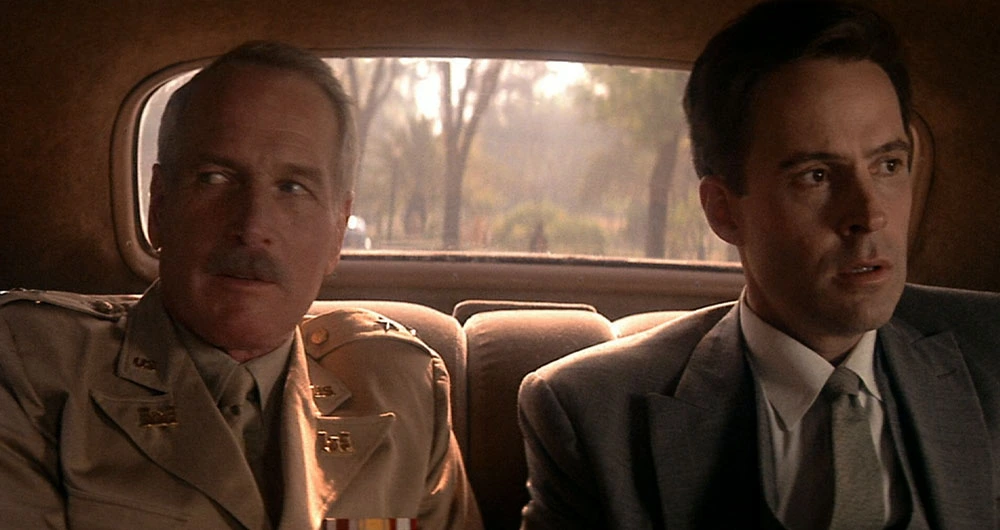
Fat Man and Little Boy is a 1989 historical drama that delves into the heart of the Manhattan Project, focusing on the tumultuous relationship between General Leslie Groves (Paul Newman) and physicist J. Robert Oppenheimer (Dwight Schultz) as they race against time to develop the atomic bomb during World War II. Directed by Roland Joffé, the film offers a gripping exploration of the political, ethical and personal conflicts that surrounded the creation of the world’s deadliest weapon. With powerful performances and meticulous attention to historical detail, Fat Man and Little Boy provides a thought-provoking companion piece to Oppenheimer, shedding light on the complex figures and momentous events that shaped the atomic age. While it may not have the same scale and visual spectacle as Nolan’s film, it compensates with its intimate character studies and nuanced portrayal of the moral dilemmas faced by those involved in the Manhattan Project.
2. The Man Who Knew Infinity (2015)
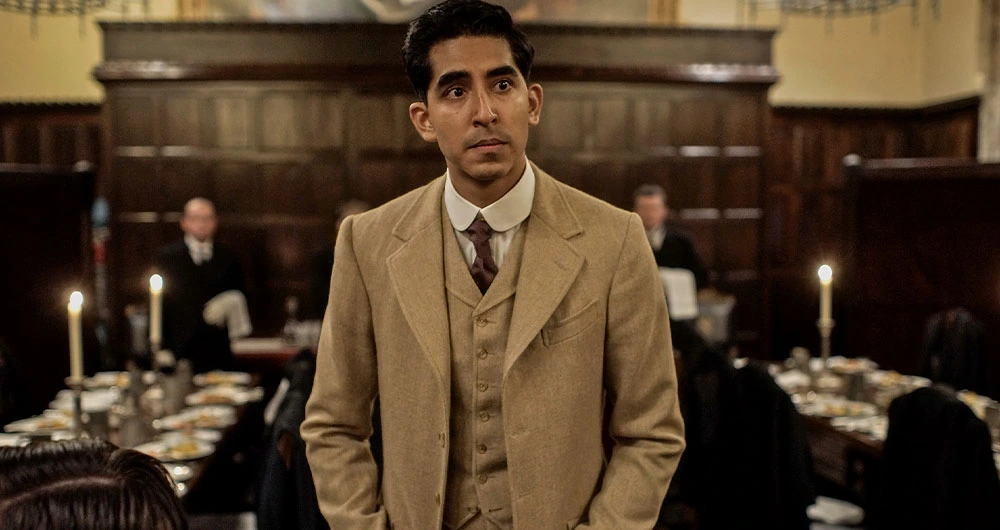
The Man Who Knew Infinity is a 2015 biographical drama that tells the incredible true story of Srinivasa Ramanujan (Dev Patel), a self-taught Indian mathematician who overcame poverty and prejudice to become one of the most influential figures in his field. Directed by Matthew Brown, the film follows Ramanujan’s journey from his humble beginnings in Madras to his groundbreaking collaboration with professor G.H. Hardy (Jeremy Irons) at Cambridge University during World War I. With stunning cinematography, an evocative score, and deeply moving performances, The Man Who Knew Infinity celebrates the power of the human mind to transcend boundaries and make revolutionary contributions to science and mathematics. Like Oppenheimer, it showcases the triumphs and struggles of a brilliant outsider who challenged the establishment and left an indelible mark on history.
3. Dr. Strangelove (1964)

Dr. Strangelove or: How I Learned to Stop Worrying and Love the Bomb is a 1964 satirical black comedy that brilliantly skewers the absurdity and paranoia of the Cold War era. Directed by Stanley Kubrick, the film follows the unhinged General Jack D. Ripper (Sterling Hayden) as he orders a nuclear attack on the Soviet Union, setting off a chain reaction of bureaucratic incompetence, political posturing, and existential dread. With an all-star cast including Peter Sellers in multiple roles, George C. Scott, and Slim Pickens, Dr. Strangelove delivers a razor-sharp critique of the madness and mutually assured destruction that characterized the atomic age. While tonally different from Oppenheimer, it shares a deep concern with the terrifying implications of nuclear weapons and the fallibility of those who wield them. Kubrick’s masterpiece remains as relevant and darkly hilarious as ever, a timeless classic that exposes the absurdity of war and the fragility of human existence in the face of apocalyptic threats.
4. The Theory of Everything (2014)

The Theory of Everything is a 2014 biographical romantic drama that chronicles the extraordinary life and love story of renowned physicist Stephen Hawking (Eddie Redmayne) and his first wife, Jane Wilde (Felicity Jones). Directed by James Marsh, the film spans decades, from Hawking’s early days as a brilliant but aimless student at Cambridge to his groundbreaking work on black holes and the origins of the universe, all while battling the progressive neurodegenerative disease that left him paralyzed. With stunning cinematography, a sweeping score, and career-defining performances from Redmayne and Jones, The Theory of Everything is a deeply moving portrait of a man who defied the odds to become one of the most celebrated scientists of our time. Like Oppenheimer, it explores the complex interplay of genius, ambition, and personal sacrifice, offering a poignant meditation on the human spirit’s capacity for love, resilience, and the relentless pursuit of knowledge in the face of seemingly insurmountable obstacles.
5. The Imitation Game (2014)

The Imitation Game is a 2014 historical drama that tells the incredible true story of Alan Turing (Benedict Cumberbatch), the brilliant British mathematician and cryptanalyst who cracked the Nazi Enigma code during World War II, only to be persecuted for his homosexuality in the aftermath. Directed by Morten Tyldum, the film follows Turing’s recruitment into the top-secret codebreaking operation at Bletchley Park, where he assembles a team of eccentric geniuses to tackle the seemingly impossible task of deciphering the Germans’ encrypted messages. With a powerful performance from Cumberbatch, a stellar supporting cast, and a gripping screenplay that balances wartime suspense with poignant character drama, The Imitation Game is a riveting tribute to a unsung hero whose groundbreaking work helped turn the tide of the war and paved the way for modern computing. Like Oppenheimer, it grapples with the moral complexities of wartime science and the tragic consequences of society’s intolerance and prejudice.
6. A Beautiful Mind (2001)

A Beautiful Mind is a 2001 biographical drama that tells the incredible true story of John Nash (Russell Crowe), the brilliant but troubled mathematician who made groundbreaking contributions to game theory and economics while battling paranoid schizophrenia. Directed by Ron Howard, the film follows Nash’s journey from his early days as a precocious student at Princeton to his top-secret work for the U.S. government during the Cold War, all while struggling to maintain his grip on reality as his mental illness takes hold. With stunning cinematography, a haunting score, and a powerhouse performance from Crowe, A Beautiful Mind is a deeply moving portrait of a man who defied the odds to become one of the most influential thinkers of the 20th century. Like Oppenheimer, it explores the complex interplay of genius, ambition, and personal demons, offering a poignant meditation on the human mind’s capacity for both brilliance and fragility.
7. Hiroshima Mon Amour (1959)

Hiroshima Mon Amour is a 1959 French New Wave drama that explores the aftermath of the atomic bombing of Hiroshima through the lens of a brief but intense love affair between a French actress (Emmanuelle Riva) and a Japanese architect (Eiji Okada). Directed by Alain Resnais and written by Marguerite Duras, the film weaves together past and present, memory and forgetting, as the lovers grapple with the trauma of war and the impossibility of fully understanding each other’s experiences. With stunning cinematography, innovative editing, and deeply poetic dialogue, Hiroshima Mon Amour is a groundbreaking work of art that challenges conventional narrative structures and probes the limits of language and representation in the face of unspeakable horror. Like Oppenheimer, it grapples with the legacy of the atomic bomb and the moral and emotional toll it exacted on those who survived its devastation.
8. The Aviator (2004)

The Aviator is a 2004 epic biographical drama that chronicles the life of Howard Hughes (Leonardo DiCaprio), the brilliant but eccentric billionaire who revolutionized the aviation industry while battling personal demons and mental illness. Directed by Martin Scorsese, the film spans decades, from Hughes’ early days as a Hollywood filmmaker to his daring exploits as a pilot and aerospace engineer, all while navigating the cutthroat world of business and politics. With stunning cinematography, meticulous period detail, and a tour-de-force performance from DiCaprio, The Aviator is a sweeping portrait of a man who pushed the boundaries of human achievement and challenged the status quo at every turn. Like Oppenheimer, it explores the complex interplay of genius, ambition, and personal struggle, offering a fascinating glimpse into the mind of a visionary who changed the course of history.
9. Amadeus (1984)
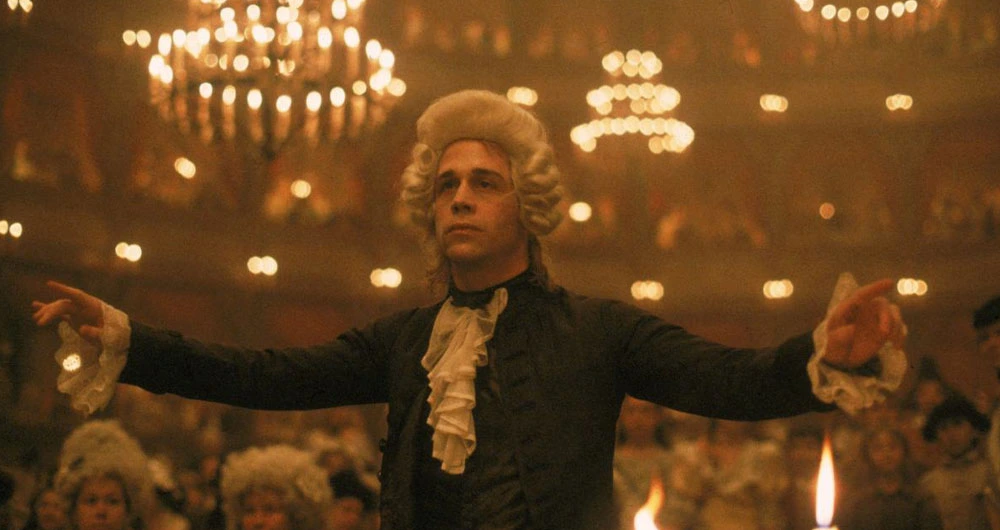
Amadeus is a 1984 period drama that tells the fictionalized story of the rivalry between Wolfgang Amadeus Mozart (Tom Hulce) and Antonio Salieri (F. Murray Abraham), the court composer who is consumed by jealousy and resentment over the young prodigy’s effortless genius. Directed by Milos Forman and based on the play by Peter Shaffer, the film follows Salieri’s obsessive quest to destroy Mozart’s career and claim his place in history, even as he is forced to confront the mediocrity of his own talent in the face of true greatness. With lavish costumes, stunning set design, and a soaring soundtrack that showcases Mozart’s timeless compositions, Amadeus is a masterpiece of historical drama that explores the nature of artistic creation and the price of fame and success. Like Oppenheimer, it grapples with the moral and psychological consequences of genius and the toll it takes on those who possess it and those who envy it.
10. The Social Network (2010)

The Social Network is a 2010 biographical drama that tells the story of the creation of Facebook and the legal battles that ensued between its co-founders, Mark Zuckerberg (Jesse Eisenberg) and Eduardo Saverin (Andrew Garfield). Directed by David Fincher and written by Aaron Sorkin, the film follows Zuckerberg’s rise from a socially awkward Harvard student to the CEO of a multi-billion dollar company, all while navigating the treacherous waters of Silicon Valley and the cutthroat world of tech startups. With razor-sharp dialogue, a propulsive score, and a brilliant ensemble cast, The Social Network is a riveting portrait of ambition, betrayal, and the birth of a new era in human communication. Like Oppenheimer, it explores the complex interplay of genius, ego, and the unintended consequences of world-changing innovation.
11. Interstellar (2014)

Interstellar is a 2014 science fiction epic that tells the story of a group of astronauts who embark on a desperate mission to find a new home for humanity as Earth becomes increasingly uninhabitable due to climate change and resource depletion. Directed by Christopher Nolan and starring Matthew McConaughey, Anne Hathaway, and Jessica Chastain, the film follows the crew as they travel through a wormhole to explore distant planets and confront the limits of human knowledge and survival. With stunning visual effects, a mind-bending plot that incorporates cutting-edge scientific theories, and a deeply emotional core that explores the bonds of love and sacrifice, Interstellar is a masterpiece of speculative fiction that pushes the boundaries of what is possible in cinema. Like Oppenheimer, it grapples with the moral and existential implications of scientific discovery and the responsibility of those who hold the fate of the world in their hands.
12. JFK (1991)

JFK is a 1991 political thriller that explores the assassination of President John F. Kennedy and the conspiracy theories that surround it. Directed by Oliver Stone and starring Kevin Costner as New Orleans District Attorney Jim Garrison, the film follows Garrison’s obsessive quest to uncover the truth behind the official story of Kennedy’s death and bring those responsible to justice. With a sprawling cast of characters, a labyrinthine plot that weaves together multiple threads of evidence and speculation, and a powerful indictment of the military-industrial complex and the deep state, JFK is a masterpiece of paranoid cinema that challenges the official narrative of American history. Like Oppenheimer, it grapples with the moral and political implications of state secrets and the lengths to which those in power will go to protect them.
13. The Dark Knight (2008)
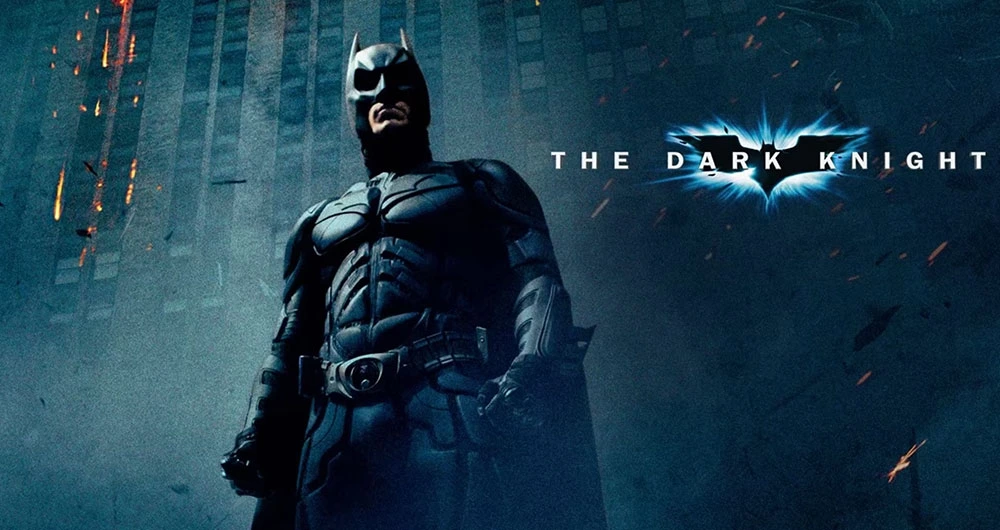
The Dark Knight is a 2008 superhero thriller that explores the battle between Batman (Christian Bale) and his arch-nemesis, the Joker (Heath Ledger), as they wage a war for the soul of Gotham City. Directed by Christopher Nolan and featuring a star-studded cast that includes Michael Caine, Gary Oldman, and Morgan Freeman, the film follows Batman as he struggles to maintain his moral code in the face of the Joker’s anarchic violence and the corruption that threatens to destroy everything he holds dear. With stunning action sequences, a complex exploration of the nature of heroism and villainy, and a career-defining performance from Ledger as the Clown Prince of Crime, The Dark Knight is a masterpiece of comic book cinema that transcends its genre to become a classic of modern filmmaking. Like Oppenheimer, it grapples with the moral and psychological consequences of power and the responsibility of those who wield it.
14. Arrival (2016)

Arrival is a 2016 science fiction drama that explores the nature of language, time, and communication through the story of a linguist (Amy Adams) who is recruited by the U.S. military to communicate with extraterrestrial visitors who have landed on Earth. Directed by Denis Villeneuve and based on the short story “Story of Your Life” by Ted Chiang, the film follows Adams’ character as she struggles to decipher the aliens’ language and prevent a global war, all while grappling with personal tragedy and the limits of human understanding. With stunning visual effects, a haunting score, and a powerful exploration of the nature of free will and determinism, Arrival is a masterpiece of speculative fiction that challenges our assumptions about the nature of reality and the power of language to shape our world. Like Oppenheimer, it grapples with the moral and existential implications of scientific discovery and the responsibility of those who hold the fate of the world in their hands.
15. Tenet (2020)
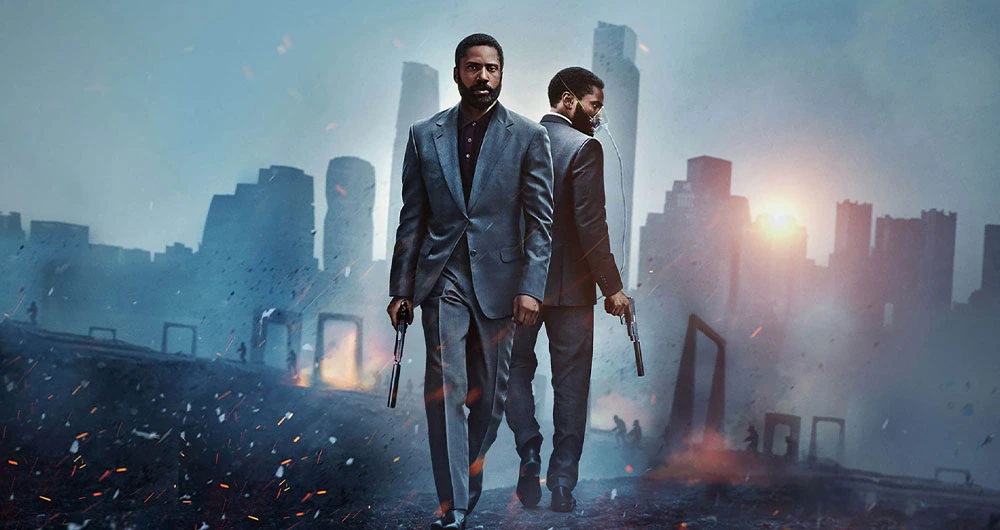
Tenet is a 2020 science fiction action thriller that explores the concept of time inversion and its potential to reshape the course of history. Directed by Christopher Nolan and starring John David Washington as a secret agent who is recruited into a shadowy organization that is fighting a war across time, the film follows Washington’s character as he navigates a complex web of temporal paradoxes and battles a mysterious villain (Kenneth Branagh) who threatens to destroy the world. With stunning visual effects, a mind-bending plot that challenges our understanding of causality and free will, and a powerful exploration of the nature of reality and the consequences of our actions, Tenet is a masterpiece of speculative fiction that pushes the boundaries of what is possible in cinema. Like Oppenheimer, it grapples with the moral and existential implications of scientific discovery and the responsibility of those who hold the power to shape the future.
16. The Prestige (2006)

The Prestige is a 2006 period thriller that explores the obsessive rivalry between two stage magicians (Hugh Jackman and Christian Bale) in late 19th century London. Directed by Christopher Nolan and based on the novel by Christopher Priest, the film follows the magicians as they engage in a deadly game of one-upmanship, each determined to create the ultimate illusion and destroy the other’s career and life. With stunning cinematography, a labyrinthine plot that weaves together multiple timelines and perspectives, and a powerful exploration of the nature of obsession and the price of ambition, The Prestige is a masterpiece of psychological suspense that keeps the audience guessing until the final shocking reveal. Like Oppenheimer, it grapples with the moral and psychological consequences of genius and the lengths to which those driven by ego and ambition will go to achieve their goals.
These 16 movies like Oppenheimer showcase the incredible power of science, technology, and the human spirit to change the world. From biopics about pioneering scientists to sci-fi epics that push the boundaries of imagination, these films will inspire you, challenge you, and leave you in awe of the wonders of the universe.
So grab some popcorn, settle in, and get ready to have your mind blown by these must-see movies. Whether you’re a science buff, a history nerd, or just a lover of great storytelling, there’s something here for everyone. Happy watching!
